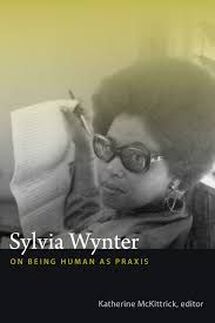CIES 2021 - Call for Proposals
CIES 2021 - Submissions due October 1st!
|
Call for Proposals
Click the link below to access the PfA CFP:
|
Social Responsibility within Changing Contexts
Seattle -- April 25 - 29, 2021 Virtual -- April 25 - May 2, 2021 | |||||||
PfA SIG Call for Proposals
The theme for the 2021 Comparative and International Society Annual Conference, “Social Responsibility within Changing Contexts,” is a provocative call to critically examine and push beyond the traditional foundations of the field and to envision differing approaches to learning, knowing, and being amidst contexts of profound global change and uncertainty.
The Post-foundational Approaches to Comparative and International Education (PfA) SIG invites scholars to consider questions of how posthumanist, postcolonial, new materialist, feminist, queer, and poststructuralist theories can make visible the taken-for-granted qualities and assumptions that undergird comparative and international education. What is the “social”? What defines “responsibility”? What is meant by “change,” what constitutes change, which changes are prioritized, considered significant and pressing, and by whom? How does “context” establish boundaries? These loaded terms often escape definition because the objects and theories to which they refer tend to be assumed within CIE research. Yet they presume values about how to live, entail comparisons between countries and among peoples and cultures, and establish what does and does not count as germane or relevant knowledge. The PfA SIG invites individual paper submissions, group panels, and posters which attend to these and other, related questions.
PfA SIG Call for Reviewers
The Post-foundational Approaches SIG invites volunteers to assist in reviewing proposal submissions for the CIES 2021 conference. Please visit the CIES submission system to sign up for this valuable and important role.
The theme for the 2021 Comparative and International Society Annual Conference, “Social Responsibility within Changing Contexts,” is a provocative call to critically examine and push beyond the traditional foundations of the field and to envision differing approaches to learning, knowing, and being amidst contexts of profound global change and uncertainty.
The Post-foundational Approaches to Comparative and International Education (PfA) SIG invites scholars to consider questions of how posthumanist, postcolonial, new materialist, feminist, queer, and poststructuralist theories can make visible the taken-for-granted qualities and assumptions that undergird comparative and international education. What is the “social”? What defines “responsibility”? What is meant by “change,” what constitutes change, which changes are prioritized, considered significant and pressing, and by whom? How does “context” establish boundaries? These loaded terms often escape definition because the objects and theories to which they refer tend to be assumed within CIE research. Yet they presume values about how to live, entail comparisons between countries and among peoples and cultures, and establish what does and does not count as germane or relevant knowledge. The PfA SIG invites individual paper submissions, group panels, and posters which attend to these and other, related questions.
PfA SIG Call for Reviewers
The Post-foundational Approaches SIG invites volunteers to assist in reviewing proposal submissions for the CIES 2021 conference. Please visit the CIES submission system to sign up for this valuable and important role.
CIES 2020 Pre-Conference Dinner:
Reading Beyond the Human
|
The meeting will take place on Sunday 3/22 from 2pm-6pm, followed by a dinner sponsored by the SIG. The maximum number of participants is 10 doctoral students.
The PFA SIG invites you to apply to our informal pre-conference workshop, Reading Together Beyond The Human. We seek to establish a space in which doctoral students read together a complex text that both follows the theme of the conference and the principles behind the SIG. There are multiple goals undergirding this reading collective: First, to foster a community of like-minded scholars by sharing a common task. Second, to encourage early-career scholars to read outside their comfort zone and in that, to share with each other reading strategies and frameworks. Finally, to find ways to connect their own work to the common text as ways to take their scholarship “beyond the human”. The chosen text will be Sylvia Wynter’s conversation with Katherine McKittrick, “Unparalleled Catastrophe for our Species?” (2015). It will be shared with participants a month in advance, together with a series of prompts and supports for people to read in relation to. Participants will also be asked to fill out a profile that will be circulated among all in advance, in order for people to get to know each other before meeting in person. During the meeting, the two facilitators, Prof. Dani Friedrich and Prof. Noah Sobe will participate not as experts, but as participant/leaders, probing, asking questions, and facilitating a hopefully productive conversation. |
If you are interested in participating, email a 200-300 word text about you in relation to the topic to [email protected] by February 15th.
CIES 2020-call for submissions open!
Call for papers
Key datesSubmission Deadline: September 25, 2019
CIES 2020 membership available: mid-October 2019 CIES proposal decision letters distributed: December 2019 Early conference registration deadline: mid-January 2020 Draft program becomes available: early February, 2020 Final program becomes available: early March, 2020 |
Education Beyond
the Human: Miami, March 22-26, 2020 | ||||||||
2019 SIG sessions:
Highlighted session: Indigenous research and theoretical proposals: towards resistance, decoloniality, and resurgence
Undoing and revisioning educational research, policy, and reform
Self and other, here and there: challenging notions of space, culture, and belonging
Making the neo-colonizer: strategies and tactics of subjectification for development
The future that I see: aspiration, education, and visions for “the good life”
The world in Teachers College, Teachers College in the world
- Contesting History Curriculum and the Legacy of Junipero Serra in California, USA and in Mallorca, Spain – Miye N. Tom, Independent Scholar; David Abril, Grupo INTER, National Distance Education University, Spain
- Educate to Perpetuate: Land-based Pedagogies and Community Resurgence – Jeff Corntassel, Indigenous Governance, University of Victoria, Canada; Tiffanie Hardbarger, Northeastern State University
- Small Indigenous schools: Comparative Indigenous education research (CIER) and schooling as Indigenous resurgence – Elizabeth Sumida Huaman, University of Minnesota Twin Cities
- Curricular possibilities that emerge from relationship with land – Amanda Fritzlan, University of British Columbia
Undoing and revisioning educational research, policy, and reform
- Challenges and hopes of decolonizing research imaginations: lessons from Japanese sociologists of education – Keita Takayama, University of New England
- From the mountains to the classrooms: Young people un-mastering curriculum Ligia Lopez Lopez, University of Melbourne; – Jay de los Reyes, University of Melbourne
- Regulated and Unregulated Big Data Analytics as (Re)Makers of Complex Educational Assemblages – Florin Daniel Salajan, North Dakota State University; Tavis Jules, Loyola University Chicago
- Transgressive learning: developing a pre-human notion of education – Stefan Lars Bengtsson, Swedesd, Uppsala University
Self and other, here and there: challenging notions of space, culture, and belonging
- A neoliberal pragmatism and neo-patriotism: An emerging Chinese educational model – Gulbahar Beckett, Iowa State University; Juanjuan Zhao, University of Cincinnati
- Examining international education as a model of cultural sustainability: A critical discourse analysis of the IBDP Music Curriculum – Antia Gonzalez Ben, University of Wisconsin-Madison
- Empathising with the Other: Unsettling Notions of Sameness and Difference through a Deconstruction of “Empathy” in UK Development Education – Nomisha Kurian, Faculty of Education, Cambridge University & Global Affairs, Yale University
- Ontological Coaching in the Affirmative Action Policy in Higher Education: The Making of Inclusion through a Vital Politics of the Self – Daniel Leyton, Universidad Alberto Hurtado
Making the neo-colonizer: strategies and tactics of subjectification for development
- “Girls” in Crisis: Colonial Residues of Transnational School Reforms in Kenya – Karishma Desai, Rutgers, The State University of New Jersey; Christopher Mark Kirchgasler, The University of Kansas
- Explorers of the World: Colonial Residues in the Making of Curious Learners – Johanna Sitomaniemi-San, University of Oulu
- Affective Engineering?: Growth Mindset and Spatializations of Mind through STEM Education – Ryan Ziols, University of Wisconsin Madison
The future that I see: aspiration, education, and visions for “the good life”
- Aspirations as Cultural Capital in Rural Mexico – Amy Laboe, University of Virginia
- From Global Citizenship Education, into the world: Towards more aesthetically-rich belonging work – Lauren Ila Misiaszek, Institute of International and Comparative Education, Beijing Normal University
- Aspiring To Be “Connected To The Soil”: Chinese Students in Elite Universities in Rural China – Chenyu Wang, University of Virginia
- Learning grammar and negotiating meanings of “the good life”: The role of language acquisition in refugee resettlement – Jieun Sung, Curry School of Education, University of Virginia
The world in Teachers College, Teachers College in the world
- Towards an Epistemic Network Analysis of Teachers College’s Role in Globalizing Educational Ideas – Daniel Friedrich, Teachers College, Columbia University
- Pioneering Global Education for the 20th Century: Dr. Isaac L. Kandel’s Ideas – Kara Gavin, Teachers College, Columbia University
- Teachers College’s Contributions to Globalizing Education: Kandel’s Doctoral Advisees – Ana Paula Pereira Marques de Carvalho, Universidade do Estado do Rio de Janeiro
- Isaac L. Kandel and the Carnegie Foundation for the Advancement of Teaching – Nancy Ku Bradt, Teachers College, Columbia University






